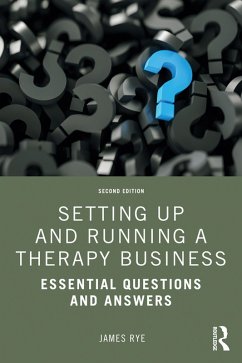This second edition has been restructured to bring all the marketing chapters together to help counsellors understand a variety of ways of helping their business grow, and includes new material on using social media. Through the inclusion of topics such as setting up a website, choosing an ideal workplace, marketing, meeting data storage standards (including new material on GDPR), and methods of accepting payments, the author offers his expertise and guidance to help practitioners make wise, workable decisions based on a thorough understanding of the stakes as well as the viable options.
As a book that bridges the gap between being a good counsellor and running a successful counselling business, it is a comprehensive read not only for counsellors who are just starting in private practice, but also for senior practitioners seeking a fresh perspective on their business.
Dieser Download kann aus rechtlichen Gründen nur mit Rechnungsadresse in A, B, BG, CY, CZ, D, DK, EW, E, FIN, F, GR, HR, H, IRL, I, LT, L, LR, M, NL, PL, P, R, S, SLO, SK ausgeliefert werden.
Lori White is a solution-focused, integrative counsellor in private practice in Wimbledon.
"I first read the first edition of this book when I was a counselling student and thinking about starting in private practice. I read the whole book in less than a week and told my peers to get a copy. It helped me from a business perspective (profit and loss, the real cost of starting up), website advice (wording, phrases to use and avoid, how to sell yourself), and how to work safely. The new chapters on social media and GDPR are really helpful. The latter is scary and unclear for many people but this edition clarifies what you need to do."
Tracey Thompson is an integrative counsellor in private practice in Carshalton.
"This book is full of down-to-earth, practical advice for counsellors who are also trying to run a business. I have recommended it to my supervisees and other counsellors, especially those starting out in private practice. The whole section on business growth has made me reflect on my own practice, and the chapter on GDPR succeeds in explaining the topic so clearly."
Rabina Akhtar is an integrative counsellor, supervisor, and trainer in private practice in Peterborough.









